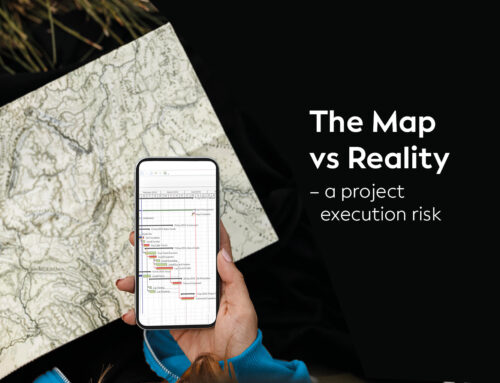We sat down with Chris Hodges to talk about his roles as a Regional Partner and a Delay Expert.
Chris is a Regional Partner with CDI Experts based in Perth, Western Australia. He has over 28 years’ experience on land and marine infrastructure, building construction, industrial, mining and oil & gas projects across Southern Africa, United Kingdom, Australia, and the Middle East. Chris specialises in delay analysis and delay expert opinion services and is also available in an advisory capacity on planning, project control and claims.
Please contact him if he can be of assistance; he is always open to exploring ideas or providing his thoughts on planning, project control and delay. We sat down with him to find out more about the work he does and his field of expertise in delay analysis.

1. What can you tell me about CDI Experts? What do we do and for who?
CDI experts are located in Australia, predominantly Perth and Brisbane at this stage, as well as Kuala Lumpur and the Middle East.
Our services sit in three areas:
1. Project & Advisory, which includes best practice and troubleshooting; planning & project control; quantity surveying; contract administration; claims management and preparation; commercial management.
2. Claims and Negotiations, which includes delay, disruption & quantum expert analysis and reports in support of claims, negotiations, mediation, and adjudications, and
3. Dispute Services, which includes delay, disruption & quantum expert analysis, reports and testimony for arbitration and litigation.
Our clients are owner, engineering, contractor, defence, and government organisations that that work on projects in:
Natural Resources – Oil & Gas; Mining and Metals; Liquide Natural Gas (LNG), and Power Generation & Renewables
Infrastructure – Road and Rail; Waterways and Marine; and Utilities
Commercial, Industry & Property – Retail, Commercial and Manufacturing; Education, Healthcare and Hospitality; Sport and Public Open Spaces; and Residential
2. What are the general day-to-day activities for someone in your position?
Every day involves business development, not just marketing and contacting clients, but sourcing new employees, and extending or maintaining your skills. Naturally, there is always the billable or revenue work on claims, disputes and helping clients with planning, project control and project advice.
3. How did you get into what you do now? Specialising in delay analysis and expert opinion?
It never was a career goal from the outset. I started as an engineering and topographical surveyor which has its focus very much at the front end of a construction projects. So, you’re at the coalface and that brings you into the planning and the organisation of a project. Being aware of what work is needed next is highly important. Moving to the UK, I was given the opportunity to take that knowledge and experience into the planning and project controls world were my focus was focused on planning and project control, in the tender and in the contract phase, and all the while working on extensions of time and carrying out delay analysis. I’ve always been interested in, dispute, the psychology of it, but also contractual matters and the law around that. I guess transferring my skills into the delay and disputes world seemed to be a natural progression.
4. What are some of the main differences in this industry you’ve noticed between South Africa and Australia? What about the UK?
I think going from South Africa to the UK, the UK was a lot more mechanised than South Africa. Obviously, there is a lot more labour available in a bigger country like South Africa. Coming to Australia, I think one of the differences is, in the UK I was exposed to standard forms of contract that weren’t amended as much as you might experience here in Australia. However, specific to Australia, work on bespoke forms of contract were something new.
5. Delays and disruptions are commonplace in the construction industry, do you plan these projects knowing that delays and disruptions will come? And what are some methods to getting around that?
Yes, to a degree you plan for changes in time. However, changes in project scope, unforeseen risk and delays are inherent in the construction projects, and as such you are never going to get away from it entirely. So, it comes down to your ability to react to change. Naturally, the contracts afford you the ability to manage change you have not allowed for. In terms of risk capability, it’s very important to have experienced people to deal with change, but even then, it’s about your attitude and your ability to face up to the risks and manage them out the best you can to minimise the impact.
6. Why should a company outsource to a construction consulting firm like CDI Experts?
I think there’s probably a number of reasons. I guess initially you have secured a project through a competitive bid and your team is likely to be fairly lean. Ultimately when change occurs, when risk or dispute events occur, you might find your team is not quite at the capacity that it can handle that change. And so, consultants can help you fill that gap. Also, for claims, having an independent view on your situation clarifies the position that you’re in and the likely perception from the other side. In some instances, we have found that our client’s client appreciates the added work and effort put into the independent analysis which improves communication and the chances of resolving issues.
7. Can a contractor use more than one type of delay analysis methods in a delay claim with multiple delay events?
Reservedly you can and certainly you can use methods within a method. The Society of Construction Law’s Delay and Disruption Protocol advocates a practical approach to delay analysis and so if the situation fits, then absolutely, that would be acceptable. That said, I think there is a danger of confusing the audience or the reader, as you move from one method of analysis to another. So, I think I would advocate as best as possible sticking to one, maybe two at the at the most. As I have said, the method is ultimately something you’ve got to decide when presented with the situation, the information and time available and take it from there.
8. Could you talk about the importance of the notice of delay? What’s your opinion on that?
In general, the concept of the notice of delay is communication. To communicate, as early as possible, issues that may have arisen or you foresee in the future. I think that’s really the driver behind it and from that point of view it is important.
9. In terms of the notice of delay, is it often used correctly in your opinion?
I think for the most part it is. I think some people get confused a little bit with the idea that it’s the claim. Yet most contracts distinguish between the two. Ultimately, the notice of delay is informative, and you want to try and convey as much information about the situation that you possibly can. And hopefully some suggestions on how to mitigate the delay. Effectively, even if your contracts don’t have a notice of delay mechanism in it, it can’t harm to issue those notices of delay or early warnings, as they call them in some contracts, to assist the process of communicating and raising or escalating the issue.
10. Usually how detailed are notice of delays?
It varies. It can be a one liner if that’s all that’s required. Again, I think it comes down to the notice of delay clause. If there’s a very tight deadline in providing it, you may not have time to put together a detailed notice of delay. But I think in its basic form; what’s delayed, how it is delaying and what is the cause are necessary elements.
11. How important is scheduling in the construction industry and how do you use it in your role?
Very important. Ultimately, your program has three main functions. Firstly, it models the method and the sequence of works that you’re hoping to achieve. And by utilising the dynamic planning software like Primavera P6, you also have the ability to carry out a number of scenarios and test the method and sequence to look for issues, clashes in resources, and clashes in time. Secondly, it’s there to capture what actually happened and in what sequence which ultimately sets you up for the third function. The third function is, where the project is not finished, to consider the forecast of work to come. Naturally, you’re trying to look into the crystal ball to some degree and predict the future, but without it you’re basically flying blind.
12. How important is knowledge of construction law when it comes to project control and delay analysis?
In the dispute world, it’s highly beneficial. However, if you are working on a project, I wouldn’t say it’s not essential as there is the place where you can pick up relevant knowledge through mentors and experience. That said, it seems to be growing in importance.
Follow us for more!
Get the expert edge
Please add your details below and we’ll be in touch as quickly as possible





